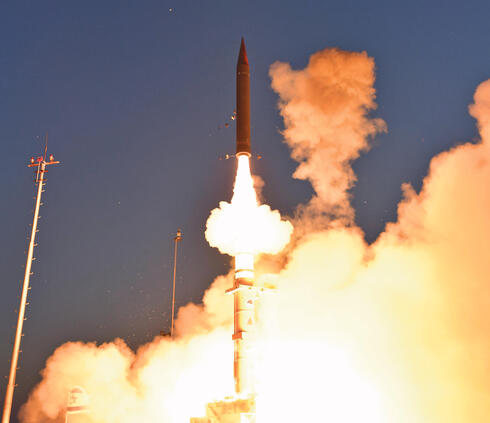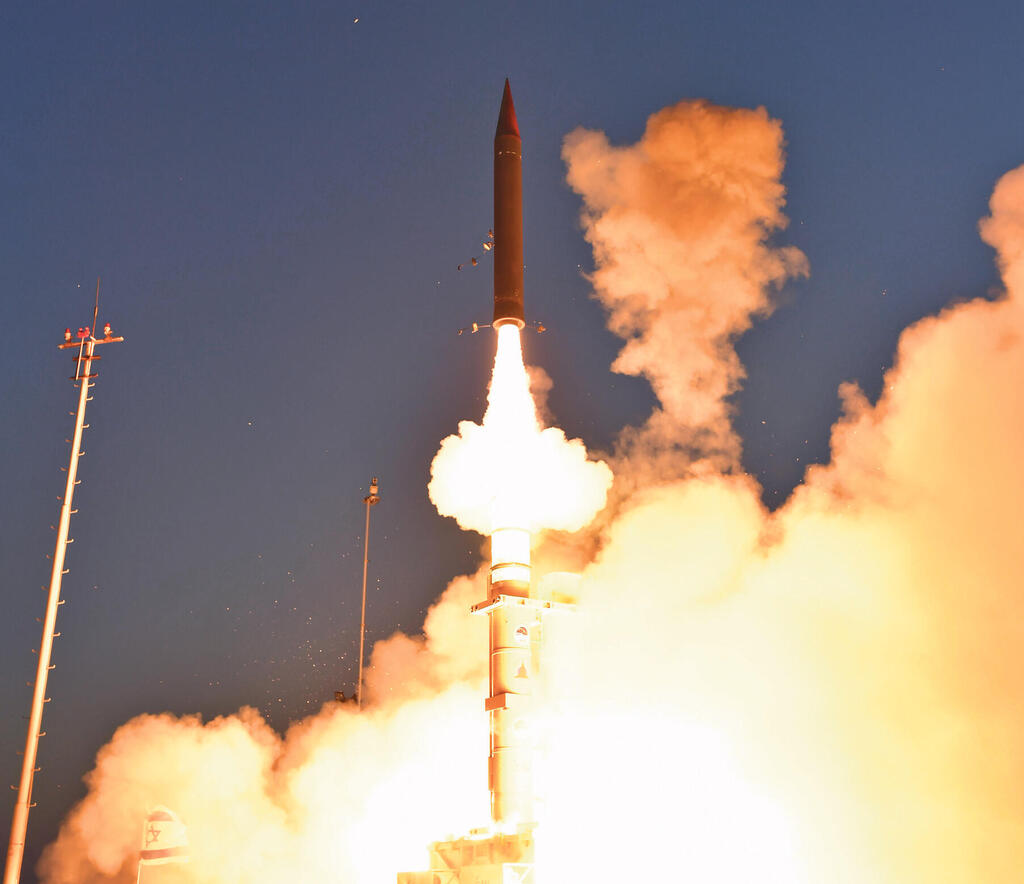
Russia-Ukraine war drives European demand for Israeli missile defense systems
Arrow 3 and David's Sling gaining momentum with first-ever exports to Germany and Finland
Rafael and Israel Aerospace Industries will expand the production lines of their air defense systems against the background of the progress in the deals for the sale of the Arrow 3 and the David’s Sling interceptor missiles to Germany and Finland, Moshe Patel, Director of the Israel Missile Defense Organization in the Ministry of Defense, told Calcalist.
Both transactions are the result of the ongoing war between Russia and Ukraine that led to a global increase in arms purchases, especially in Europe where there is a significant demand for missile defense systems considering potential threats from Russia.
This will be the first time Israel will be exporting the both the IAI's Arrow 3 and Rafael's David’s Sling.
Patel’s statements come against the backdrop of the U.S. State Department's decision from last week to approve the sale of the David’s Sling to Finland in a deal worth 312 million euros. The deal with Finland required U.S. approval due to the high involvement of the U.S. Missile Defense Agency in the development of the David’s Sling.
According to Patel, due to the U.S.'s affinity with the David’s Sling, the production of the missiles and launchers to be supplied to Finland will be divided equally between Israel's Rafael and the American corporation Raytheon. The interception means to be supplied to Finland will not include the original command and control system used by the David’s Sling and developed by Elisra of Elbit Systems, and this due to the Finns' request to implement their own command and control system.
But as big and significant as it may be, the David’s Sling deal with Finland is only the appetizer for the huge deal that is currently coming together through which the IAI will equip the German Air Force with Arrow 3 interceptor missiles for an unprecedented amount of 4 billion euros.
About two months ago, the German House of Representatives, the Bundestag, authorized the Ministry of Defense to transfer an advance of about 600 million euros to the Israeli Defense Ministry so that it could prepare for the massive production of the missiles, launchers, radars and other components related to the system.
The approval of the advance is an unusual move and its background is the challenging timetables that Germany has set for the IDF, as it aims to achieve initial defense capabilities using the Arrow 3 missiles as early as 2025.
Similar to the approval that the American State Department gave to the deal with Finland, the Arrow deal with Germany also requires such approval, and according to a senior security official, "it should be given in the next few days."
About half of the production work of the Arrow 3 systems for Germany will be done by American companies and this is by virtue of agreements between the Ministry of Defense and the U.S. Department of Defense.
The deal with Germany differs from most arms deals, in which the purchasing country requires the suppliers with whom it contracts to relocate the production to its territory while transferring knowledge, or to apply changes in systems that include the assimilation of local components.
These are requirements that are expanding worldwide and are a condition for signing a deal, and many companies, which face a very competitive market, fall in line with them. In this way, the countries that purchase weapons systems import knowledge and at the same time upgrade the capabilities of their local industries.
According to Patel, due to the Germans urgency to receive the Arrow 3 missiles, they gave up on local production and the adaptation of the defense system to German components and asked IAI for a system that is completely identical to the one used by Israel. This will result in Rafael and the IAI increasing their workforce by dozens if not hundreds of new employees. "We want to see Israeli manufacturers increase their workforce while doubling production lines," said Patel.
One of the biggest beneficiaries of the two transactions is IAI's subsidiary, Elta Systems, which develops and manufactures the radars used by both the David’s Sling and Arrow systems. The David’s Sling radar is a multi-armed radar used by the Iron Dome defense system. Elta Systems also developed and manufactures the radars used by the Arrow 3 system called "Oren Adir".
Poland is equipping itself with Rafael anti-tank missiles
Poland's Minister of Defense Mariusz Blaszczak tweeted last weekend about the additional equipping of the Polish army with Rafael "Spike" anti-tank missiles that will be produced at the Mesko factories belonging to the local defense industries corporation PGZ, and this by virtue of the industrial cooperation between the companies.
Hundreds of LR missiles with a range of more than 4 kilometers will be supplied to the Polish Army during the next three years at a cost of approximately $100 million. In his tweet, the Polish Minister of Defense added that "a modern and equipped army is a guarantee of our security".
This is not the first time that the Polish army is equipping itself with missiles manufactured by Rafael. Since 2004, Poland has been equipped with more than 3,000 anti-tank missiles produced on its territory as part of the cooperation between Rafael and Mesko. According to estimates, until now Rafael has sold missiles belonging to the "Spike" missile family to about 40 countries.














